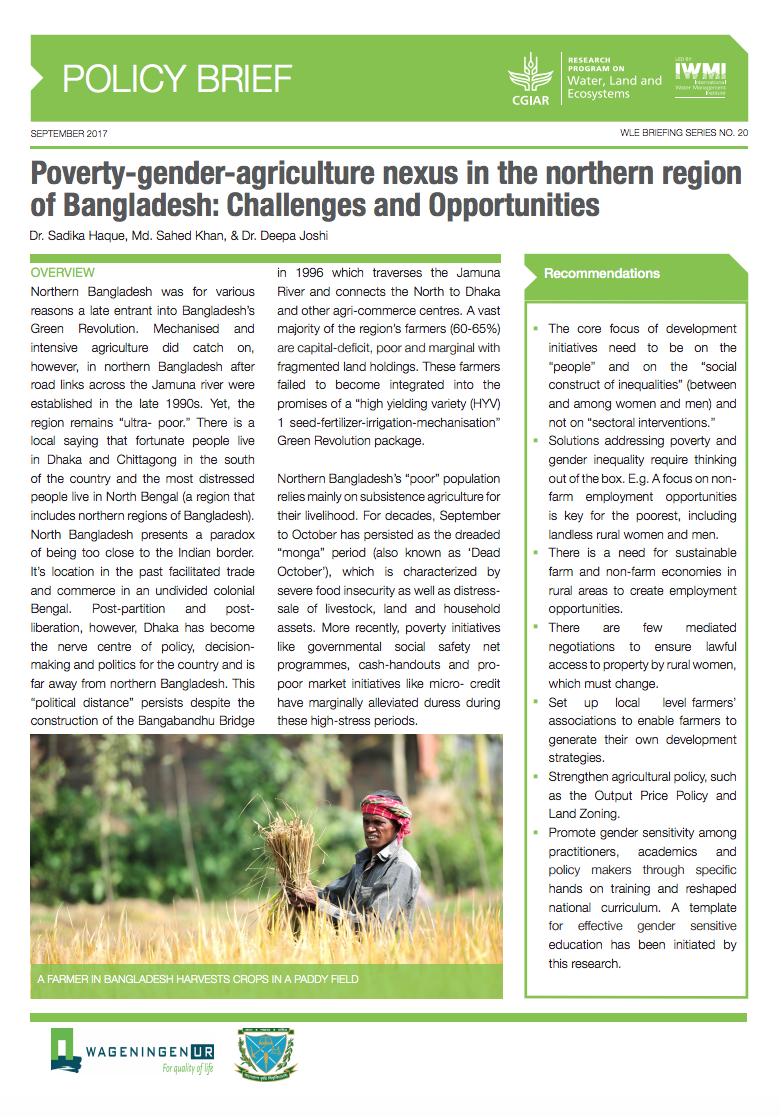Resource information
Northern Bangladesh is a remote region which was excluded from the Green Revolution and today remains “ultra-poor”. There is a saying in the area that the most fortunate people live in Dhaka and Chittagong in the south of the country and the most distressed people live in North Bengal (Northern regions of Bangladesh). North Bangladesh presents a paradox of being too close to the Indian border, which had facilitated trade and commerce in the undivided colonial Bengal, and too far away from Dhaka, the nerve centre of policy, decision-making and politics in Bangladesh. The “policy distance” persists. The Bangabandhu Bridge constructed over the Jamuna River in 1996, creating a vital connection between the North, Dhaka and other agri-commerce centres came several decades too late after the start of the 1970s Green Revolution. A vast majority of the region’s (60-65%) capital-deficit, poor and marginal farmers with fragmented land holdings were not integrated into the promises of the “high yielding variety (HYV) 1seed-fertilizer-irrigation-mechanisation” Green Revolution package.
Northern Bangladesh continues to be one of the “poorest” regions in the country, housing huge numbers of the country’s “ultra-poor” whose livelihood mainstay is subsistence agriculture. For decades, September-October has persisted as the dreaded “monga” period (also known as ‘Dead October’) characterized by a severe food insecurity; distress-sale of livestock, land and household assets. More recently poverty initiatives like governmental social safety net programmes; cash-handouts and pro-poor market initiatives like micro-credit have slightly facilitated coping during high-stress periods.


